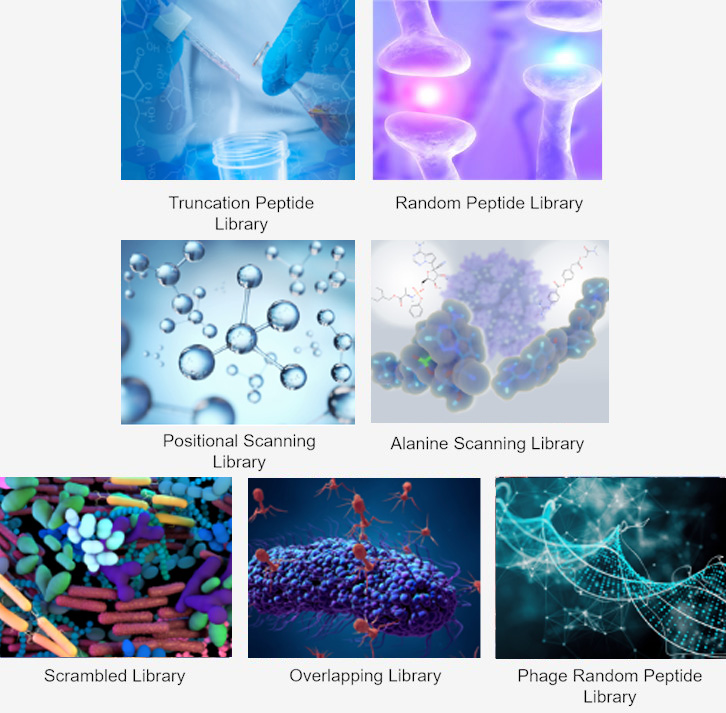Immune checkpoint molecules function as a complex system of checks and balances that promote or inhibit immune responses. Checkpoint molecules likely evolved to precisely balance the need to control pathogens and cancer to maintain tolerance to healthy tissues and the microbiota. With a comprehensive technology platform and Ph.D.-level expert team, Creative Biolabs is confident in offering a range of immune checkpoint targeted peptide selection services such as synthetic peptide-library based selection supported by an experienced team of scientists working with the latest technology.
CTLA-4 is the first immune checkpoint receptor discovered and characterized. Scientists have demonstrated that cysteine-knot peptide can be engineered via rational design and combinatorial library screening to bind CTLA-4 using yeast surface display. The affinity of the first series of peptides is improved by in vitro affinity maturation to afford a stronger binder.
Peptide-based VISTA antagonist, which is identified through the M13 phage display, significantly enhances the proliferation of T cells as compared to an anti-VISTA antibody or an anti-PD-Ll antibody. Furthermore, the antitumor efficacy of this VISTA peptide is demonstrated in immunogenic bladder cancer. Previous research has indicated the probable mechanism of action of antagonist could be the binding of peptides to the critical/active site of VISTA, hence blocking the immunosuppressive function of VISTA.
LAG-3 was the third inhibitory checkpoint receptor to be targeted in the clinic after CTLA-4 and PD-1. It binds significant histocompatibility complex class II (MHC II) on the antigen-presenting cell (APC) to transmit inhibitory signals that promote Treg-mediated immune suppression. Scientists have reported a peptide targeting LAG-3 for cancer immunotherapy by activating antigen-specific CD8+ T cell responses. The peptide C25 could effectively bind to LAG-3, thus effectively interfering with the binding between LAG-3 and HLA-DR (MHC-II), leading to immune pharmacodynamics modulation.
Recently, immune checkpoint therapies based on small molecule drugs have attracted amounts of attention from scientists who are devoted to cancer treatment. Building upon deeply understanding the signaling pathways and implications of immune checkpoint molecules, Creative Biolabs has developed a full-scale platform to develop immune checkpoint-associated peptides to meet different global customers' demands. We have built a strong reputation for our ability to deliver outstanding science. Our experienced team can save you time by developing peptide drugs based on various synthetic peptide libraries to meet your specifications.

Creative Biolabs has strong teams to provide immune checkpoint targeted peptide selection services. Our experts can provide flexible solutions for your choice; either a stand-alone service or integrated project is welcome to meet every specific demand. If you want to know more information, please directly contact us.
All listed customized services & products are for research use only, not intended for pharmaceutical, diagnostic, therapeutic, or any in vivo human use.
USA
Tel:
Fax:
Email:
Copyright © 2026 Creative Biolabs. All Rights Reserved.